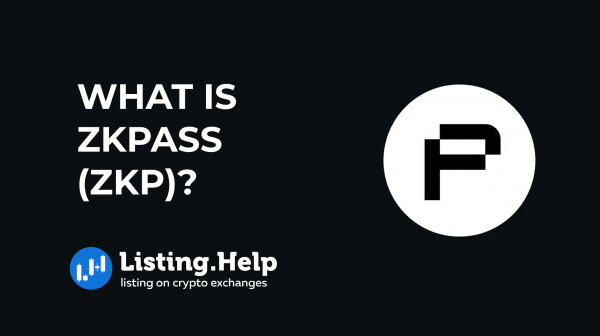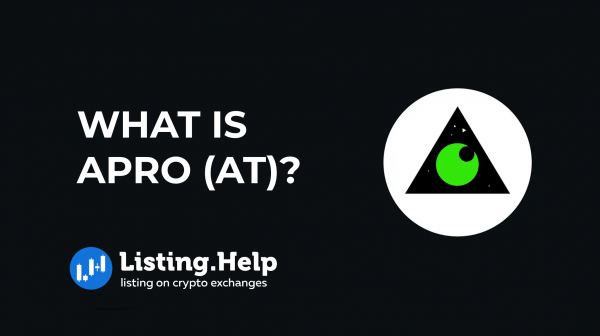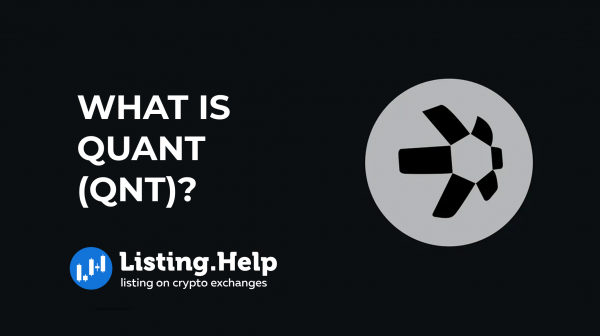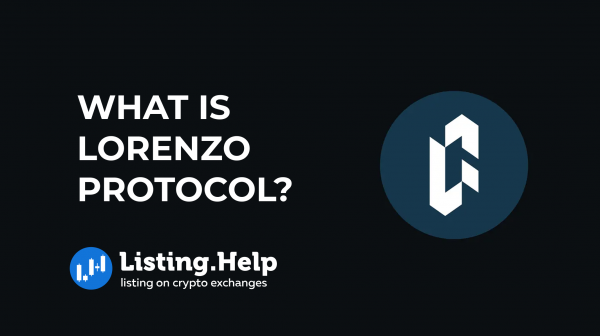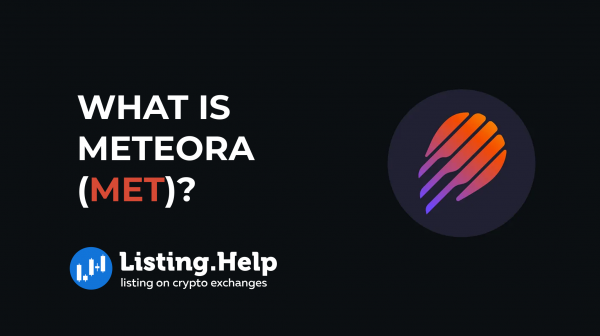What is Nillion (NIL)?
 April 22, 2025
April 22, 2025 Updated: April 22 2025, 12:09
Updated: April 22 2025, 12:09
LEAVE A REQUEST
Launching your own token project? Our experts are ready to help with listing on exchanges, market making, marketing and other solutions
SUBMIT APPLICATIONNillion is a decentralized network built to handle private data securely — both in storage and during processing. It offers an infrastructure that protects sensitive information by allowing it to be computed without being exposed, using specialized cryptographic methods.
What is Nillion?
Nillion is a distributed computing system designed to protect privacy during data processing. Unlike blockchain platforms that mainly focus on validating transactions, Nillion enables encrypted data to be used without ever being decrypted. This makes it well-suited for systems where data confidentiality is critical, such as artificial intelligence, finance, healthcare, and decentralized identity platforms.
How Nillion Works?
The Nillion Network is based on three main parts: Petnet, nilChain, and Blind Modules. Together, they support private computation, secure storage, and the internal economy of the network.
1. Petnet (Processing Layer)
Petnet is the core component that powers secure computation. It’s made up of decentralized nodes working together to compute over encrypted data. Because of the way it’s designed, no single node can ever access the full dataset. This lowers the risk of leaks and improves data protection.
2. nilChain (Coordination Layer)
nilChain coordinates how resources move through the network. Built with the Cosmos SDK, this layer manages staking, payments, and network governance. It doesn’t support smart contracts directly but plays a critical role in keeping the system running and maintaining order among participants.
3. Blind Modules
Blind Modules are cryptographic tools that make it possible to use encrypted data without revealing the contents. These modules rely on privacy-focused techniques, including:
- Multi-party computation (MPC): Tasks are split between several parties, so no single group has access to the full data.
- Homomorphic encryption (HE): Allows data to be processed while still encrypted, with only the final result decrypted when needed.
There are three main types of Blind Modules: nilDB, nilAI, and nilVM.
- nilDB is a specialized database for storing sensitive data across multiple nodes. Each node holds just one piece of the encrypted information, reducing exposure and increasing security.
- nilAI is designed for AI workloads. It enables large language models and other AI tools to work with sensitive data in a secure way that respects user privacy.
- nilVM provides a way for developers to create privacy-focused apps. It uses a domain-specific language based on Python and helps manage multiple chains and private keys with MPC-based signature tools, simplifying interactions across systems.
Sure. Here’s a rewritten version that matches the original in meaning, volume, and tone — but with a smoother, more natural voice, avoiding overused phrasing and overly formal structure:
What is the NIL Token?
NIL is the native utility token that powers activity across the Nillion network. It plays a central role in how the system functions, supporting everything from payments and computation to network participation and decision-making. NIL is what allows the network to coordinate services and reward those who contribute computing resources for its multi-party computation (MPC) protocols.
What NIL Does
1. Payment and Coordination
On the Nillion network, NIL is used to pay for services. When a user initiates a task, the required tokens are routed to the appropriate network modules and nodes. This ensures that sensitive data moves smoothly through the system without ever being revealed or exposed in the process.
2. Secure Computation
The network’s approach to blind computation lets users run privacy-focused tasks by distributing them across different nodes. These tasks are often computationally intensive, relying heavily on cryptography. NIL tokens are used to compensate the nodes that supply the processing power needed to complete them.
3. Staking and Network Security
Staking NIL tokens helps keep the network stable and secure. Node operators lock up tokens as a show of good faith, and in return, they’re rewarded with a share of transaction fees or protocol-generated earnings. This system motivates consistent, high-quality service and discourages bad behavior.
4. Governance and Voting
Holding NIL also means having a say in how the network evolves. Token holders can vote on proposals — ranging from how resources are allocated to whether certain upgrades should be adopted. This structure gives users real influence and helps the system adapt while staying decentralized.
The NIL token is listed on many exchanges, including KuCoin, MEXC, Binance, Bybit and Kraken.
How Nillion Can Be Used?
Nillion was built with privacy at its core, which makes it well-suited for many real-world scenarios. It can support secure data storage, analytics, AI systems, and digital verification processes — all without exposing sensitive information.
1. Private Data Storage
Organizations can store confidential information on Nillion in encrypted form. What sets it apart is that this data can be accessed and used by approved parties without being decrypted on any single device. This has clear advantages for sectors like healthcare, finance, and public administration, where protecting personal or classified data is non-negotiable.
2. Analytics Without Exposure
Nillion offers a feature called SecretDataAnalytics. It lets companies run calculations on encrypted data sets. That means insights can be extracted and decisions made based on sensitive data — without actually viewing the raw information. This opens the door to secure analytics for regulated industries or environments with strict data-handling rules.
3. Privacy-Friendly AI and Machine Learning
Nillion makes it possible to train and run AI models on encrypted information. This can help organizations comply with data privacy requirements while still using powerful tools like machine learning. Applications might include analyzing health data for research, detecting fraud in financial systems, or offering better services based on user behavior, all without sacrificing confidentiality.
4. Digital Signatures and Transactions
Using multi-party computation, Nillion enables digital signatures that don’t depend on any central authority. This is especially helpful for decentralized organizations and institutions that want to verify transactions securely while keeping the details private. It can add a layer of trust and security to processes that need it most.
5. AI-Powered Content with External Data
Retrieval-augmented generation (RAG) is a technique that improves the performance of large language models by pulling in outside data before generating a response. By combining this approach with privacy technologies, Nillion allows AI systems to produce more relevant and accurate results — without revealing the sensitive information behind the scenes.
Conclusion
Nillion presents a practical way to work with private data using secure computation. By keeping information encrypted even during processing, it supports confidential analytics, privacy-first AI applications, and safe digital verification — all within a decentralized system.

For more insights and updates on the crypto world, don’t forget to check out our blog at Listing.Help.
More Useful Resources on Token Creation and Listing
We have many more useful articles on various topics on how to create and list your token, including meme tokens.
Learn the ins and outs of the process with these detailed guides:
- How to List a Token on a Cryptocurrency Exchange: Best Crypto Listing Agencies
- Can You List Your Token on an Exchange for Free?
- How to Create a Meme Coin on Solana: A Step-by-Step Guide
- How Much Does It Cost to List Coins on an Exchange?
- How to List a Token or Coin on Coinbase
- How to List a Token or Coin on OKX
- How to List a Token or Coin on Gate.io
- How to Get Listed on DEXTools
- How to Get Listed on CoinMarketCap: A Comprehensive Guide
- How to List Your Cryptocurrency on CoinGecko
- How to List a Token on PancakeSwap: A Complete Guide




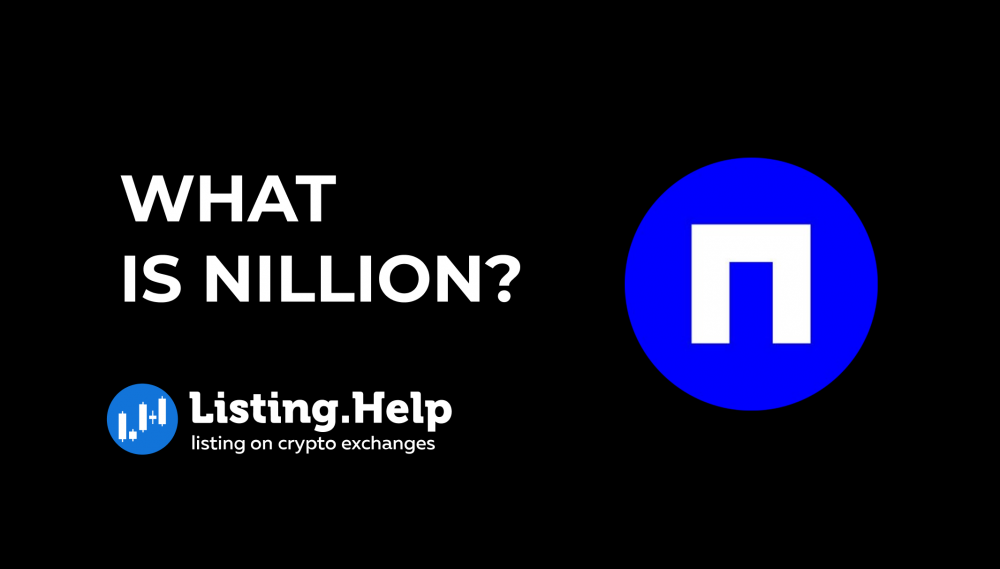

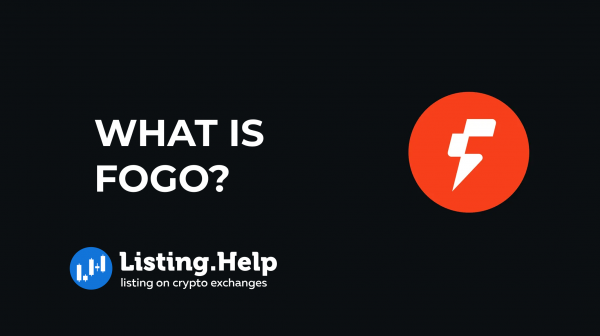
 February 23, 2026
February 23, 2026 